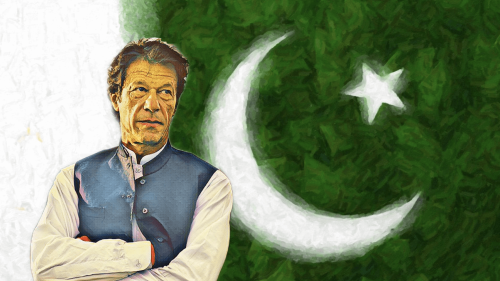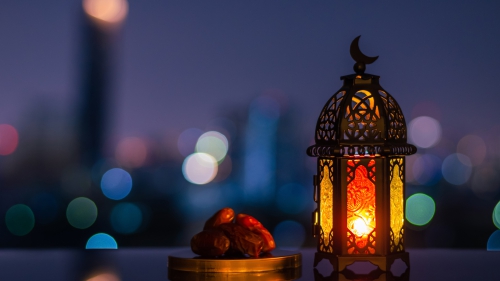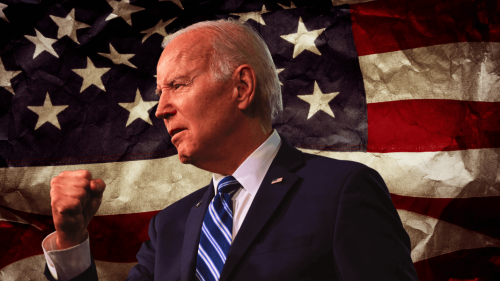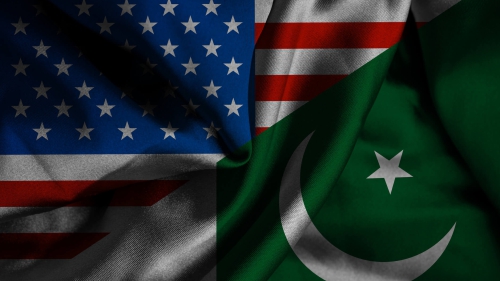US grants asylum to autistic Pakistani boy
CHICAGO, Feb 23 (AFP) - Back in his native Pakistan, Umair Choudhry was kept closeted at home for fear that his noisy and unprovoked outbursts would draw the contempt of strangers and even relatives.
These days the severely autistic 10-year-old boy packs his school bag and puts it beside the front door of his modest Chicago home even on weekends, such is his keenness to go to school.
"I feel he is safe here," says Umair's mother Farah Choudhry in the living room of her suburban apartment.
He is perhaps an unlikely refugee, but on Tuesday this week Umair was granted political asylum by the United States because of the persecution he could face in Pakistan.
"He fits the classic definition of a refugee," said Robert Esbrook, director of the Chicago Office of Asylum for the US Immigration and Naturalization Service.
"It's the persecution his disability itself causes."
His mother Farah initially came to the United States seeking help for her youngest son in 1996 and after studying at a New Jersey center specialising in autism, returned to Karachi to try a home-based program for herself.
But over time Umair's condition worsened and he became increasingly unmanageable: screaming, pulling out his hair and biting his gums until they bled.
"People were saying he was a danger to their children. I was hiding him all the time in our home ... I was under house arrest in my own home," Choudhry recalled Friday.
Under pressure from her in-laws, Choudhry said she took her son to a spiritual healer to have his "evil spirits" exorcised. She even forced him to drink dirty water that crows had been drinking in pursuit of a cure.
Many in her inner family circle even suggested that Umair's condition -- a neurological disorder of the brain which predominantly afflicts boys, leaving them with little or no verbal or social skills -- was the result of some form of divine punishment.
"This child is punishment from God for your sins," was a frequent reproach Choudhry said. There was even talk of having him committed to a mental institution.
Eventually the 40-year-old mother of two returned to the United States in 1998 in search of better medical treatment. Once here, she decided she could not allow her son to return home to be treated as a pariah and an outcast.
"I wasn't able to face my family anymore. They thought some miracle will happen here in America," said Choudhry.
In fact, Umair's condition had deteriorated, as the boy began punching and hitting himself in the head in what doctors said was a symptom of obsessive-compulsive disorder.
For the past two years Umair has worn a hockey helmet and mittens for his own protection, although "that's our next goal, to wean him off it," noted his mother.
The family's funds are running low -- Choudhry and her husband (a mid-ranking official who remained behind in Pakistan) cashed in their life savings and most of their possessions to fund their sojourn in the US -- but she has no regrets.
Umair's social skills have improved, he responds to some basic commands, and thanks to his attendance at a special needs school five days a week, he is receiving much greater stimulation than he could have hoped to get at home, according to his mother.
From the perspective of Pakistani officials it's the superior remedial care that the United States can offer that is the real issue in this cultural and human story.
"It's a developmental issue in my opinion rather than one of persecution," said Asad Hayauddin, attache to the Pakistani embassy in Washington DC.
While he sympathised with Choudhry's dilemma, and her desire to seek out the best care for her son, any intolerance or hostility Umair had experienced in Pakistan, was he suggested, a "localised and minor," matter.
"It's not a societal problem," he insisted. But clearly at its level of development Pakistan could not hope to rival the quality of care that an autistic child could find in the United States.
"Here I am free to take my son out if he wants to and people are kind to us. They understand that he has a problem and treat him with dignity, and like he is a real person," Choudhry told INS officials in a written testimonial.
"All I want is for my son to is to be able to lead a life where people will love him for who he is, as I know one day I will not be here for him.
"I want to leave him in a place where he can be looked after and is in safe hands."

















